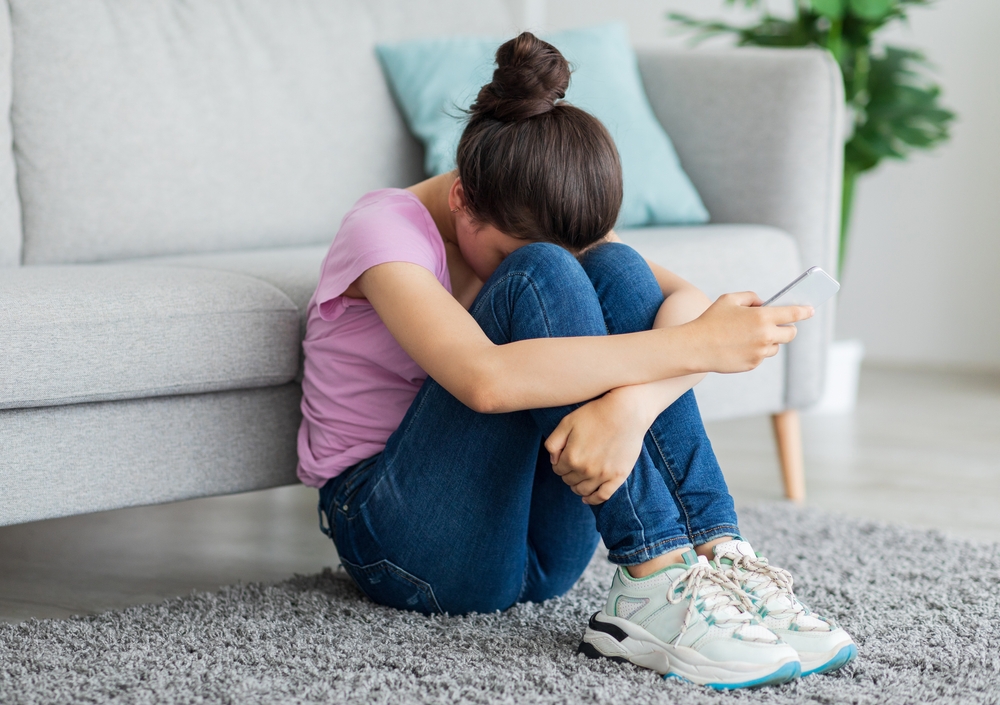Children and teens can experience panic attacks, although these brief episodes of intense anxiety that cause physical symptoms are more common in adults. Panic attacks can be extremely terrifying to experience, or witness, in your child. It’s critical to recognize that while panic attacks won’t cause any physical harm to your child or teen, there are professional treatments available to help your child effectively manage their anxiety and reduce their risk of experiencing panic attacks. Keep reading to learn the common signs of a child having a panic attack you need to watch out for.
Adults are not the only ones at risk of experiencing panic attacks. Children and teens can also experience panic attacks; however, sometimes it can be difficult to spot if you don’t know the signs. According to the National Institute of Mental Health, about 4.7% of U.S. adults experience panic disorder at some point in their lives.
At Embrace U, we offer leading adolescent mental health care in Brentwood to children and teens aged 10-18. We understand how difficult it can be to watch your child struggle with mental illness. That’s why we offer a wide range of mental health treatment services to ensure your child receives the right care for their unique recovery needs. Contact us today to learn how you can start your road to recovery.
What is a Panic Attack?
A panic attack is an abrupt and intense physical response to anxiety or fear. During a panic attack, a person may experience symptoms such as a rapid heartbeat, shortness of breath, nausea and shaking. It’s not uncommon for someone experiencing a panic attack to feel as if they are having a heart attack, losing control, or even dying. While panic attacks are not life-threatening, they can be very frightening and negatively impact a person’s quality of life.
Panic attacks usually come on suddenly and can happen anywhere and anytime – while sleeping, at school or while playing sports. Most people experience one or two panic attacks in their lifetime, while others may suffer from panic attacks more frequently. For them, psychiatric treatment is usually the best option.
Symptoms of a Panic Attack
While the symptoms of a panic attack can vary from person to person, and even over time, most people report a sense of impending doom or danger, intense fear, and rapid heart rate.
Panic attack usually include some of these physical symptoms:
● Rapid, pounding heart rate
● Chest pain
● Headache
● Trembling or shaking
● Sweating
● Shortness of breath
● Chills
● Hot flashes
● Nausea
● Sense of detachment or unreality
Why Would a Child Have a Panic Attack?
Although there is no one clear cause to explain why a child would experience panic attacks, inevitably experiencing anxiety or stressful situations can increase the risk of struggling with panic attacks. Existing mental health conditions such as severe anxiety, depression, obsessive compulsive disorder or post-traumatic stress disorder can increase risk of panic attack.
Panic disorder often begins in adolescence, according to the American Academy of Child & Adolescent Psychiatry. Children who experience multiple panic attacks may start to feel anxious, even when they are not having an attack. They may begin to avoid activities they believe could trigger a panic attack. This could include avoiding school or being separated from parents.
Some examples of stressful situations that can increase your child’s risk of having a panic attack include:
● Stress around relationships
● Stress around doing well in school
● Death of a family member or friend
● Experiencing violence
Anxiety disorders often run in families, so if someone in your family has experienced panic attacks your child may have a heightened risk of experiencing them themselves.
Signs That a Child is Having a Panic Attack
Most panic attacks start abruptly and last between five and 20 minutes, though some can last much longer. Signs that a child is having a panic attack include a sense of terror or intense fear. In some cases, a child may feel as if they are not in their own body. Common signs of a panic attack in children include the following symptoms:
● Feeling faint
● Dizziness
● Light-headedness
● Hyperventilating
● Chest pains
● Shortness of breath
● Heart palpitations
● Feeling nauseous
● And more
Individuals who experience panic attacks typically feel like they are losing control and may even feel like they are dying. However, panic attacks, though frightening to experience/witness, are not life-threatening. Yet, that doesn’t mean you should ignore any signs of a child having a panic attack.
How to Treat Panic Attacks in Children
If your child is experiencing frequent panic attacks you should consider professional treatment to manage these episodes effectively and hopefully stop them from occurring. While most treatments will vary by child and the severity of the panic disorder, common treatment options include receiving cognitive behavioral therapy (CBT) and antidepressant medication. Breathing exercises can also be effective in calming down those physical symptoms and effectively working through the panic attack.
It’s also important to educate your child about panic attacks. While they may seem scary to experience, they are not life-threatening and will pass. Also, try to assure your child that a panic attack is only momentary and is not a heart attack or something more dangerous.
Let your child know that they don’t have to feel alone with dealing with their panic attacks. Not only will seeking treatment provide them with a supportive team of mental health professionals to help your child better manage their panic disorder symptoms, but make sure to let your child’s teachers know about their panic disorder and educate your child on the importance of asking for help if they suspect a panic attack may be about to occur.
Leading Adolescent Mental Health Care in Brentwood
In extreme cases, reoccurring panic attacks can become a debilitating and isolating illness. Untreated panic disorder can greatly impact a child’s quality of life. That’s why it’s critical that if your child experiences frequent panic attacks you seek the help of a mental health expert.Embrace U is a leading adolescent mental health treatment center that helps children and teens effectively manage symptoms of a mental health challenge. We understand how debilitating mental illness can be if left untreated. That’s why we offer a range of treatment options to help you on your recovery journey. Contact us today to learn more about how we can help you lead a happier, healthier life.




